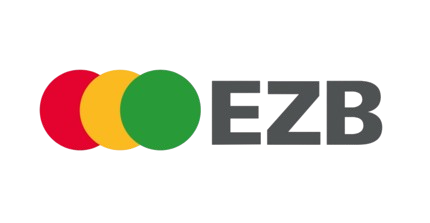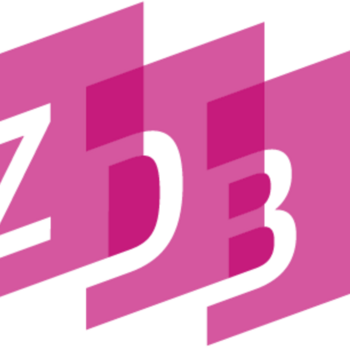Univerzitetsko obrazovanje – Kako prokrustovu postelju transformisati u obrazovanje za proteansku karijeru / University Education - How to Transform Procrustean Bed into Education for a Protean Career
DOI:
https://doi.org/10.48052/19865244.2023.1.413Keywords:
protean career, study programs, short cycles, part-time studies, dual studiesAbstract
What is the purpose of universities - education or job training? What should be our priority - competences for the 21st century or finding a job within a year after graduating? The future is unpredictable and today’s actions are not necessarily good, but the worst thing to happen would be doing nothing. The survival and development of university depends on our vision of who are the generations to come, what we will teach them, how we will develop the curricula and how far we will succeed in moving away from linear careers as a Procrustean bed, punishing and forcing us to believe that what we have is the only thing possible if deviations from the prescribed norm happen or if one attempts spurring development. On the other hand, the context in which education takes place is constantly changing, and today’s careers, defined as a collection of all experiences and changes in values and attitudes (not advancement in the workplace) are changing their forms just like Proteus. Therefore, the important question is how to reject the Procrustean bed and accept the concept of a protean career as a guide in the development of higher education? The development of new study programs and the revision of existing ones should be guided by the following postulates: internationalization, interdisciplinarity, equality in access and adaptation to the needs of people who need to build their careers in the next dozen years. Innovative study programs should offer: experiences that will be attractive to students from all over the world, a holistic approach to the learning experience and multiperspective, equality in access to all interested parties at every moment of their lives, and flexibility that will allow the student to have his own pace of learning. Some examples of such programs are dual studies, short cycles, combined studies and recognition of prior learning. The University of Sarajevo is a participant in two ERASMUS+ projects aimed at the development of dual studies and short-cycle programs with the aim of increasing access to education and adapting to the needs of students and employers, which directly support the principles of a protean career.
References
Barley, S. R., Bechky, B. A., & Milliken, F. J. (2017). The Changing Nature of Work: Careers, Identities, and Work Lives in the 21st Century. Academy of Management Discoveries, 3(2), 111–115. https://doi.org/10.5465/amd.2017.0034
Briscoe, J. P., & Hall, D. T. (2006). The interplay of boundaryless and protean careers: Combinations and implications. Journal of Vocational Behavior, 69(1), 4–18. https://doi.org/10.1016/j.jvb.2005.09.002
Briscoe, J. P., Hall, D. T., & Frautschy DeMuth, R. L. (2006). Protean and boundaryless careers: An empirical exploration. Journal of Vocational Behavior, 69(1), 30–47. https://doi.org/10.1016/j.jvb.2005.09.003
Bryson, J. M., Crosby, B. C., & Bloomberg, L. (2014). Public Value Governance: Moving Beyond Traditional Public Administration and the New Public Management. Public Administration Review, 74(4), 445–456. https://doi.org/10.1111/puar.12238
Communication from the European Commission: Opening up Education: Innovative teaching and learning for all through new Technologies and Open Educational Resources, COM(2013) 654 final, http://ec.europa. eu/education/news/doc/openingcom_en.pdf
El-Azar, D. (2022, February 7). 4 trends that will shape the future of higher education. World Economic Forum. https://www.weforum.org/agenda/2022/02/four-trends-that-will-shape-the-future-of-higher-education/
ERASMUS+ PARTISH consortium. (2021). Specification of needs and requirements for PT and SCHE programs - BiH. Report.
Flores Fahara, M., & Lozano Castro, A. (2015). Teaching Strategies to Promote Immediacy in Online Graduate Courses. Open Praxis, 7(4). https://doi.org/10.5944/openpraxis.7.4.228
Hall, D. T. (1976). Careers in organizations. Scott, Foresman.
Hall, D. T. (2002). Careers in and out of organizations. Thousand Oaks, Calif. Sage.
Hall, D. T. (2004). The protean career: A quarter-century journey. Journal of Vocational Behavior, 65(1), 1–13. https://doi.org/10.1016/j.jvb.2003.10.006
INTERNATIONAL COMMISSION ON THE FUTURES OF EDUCATION. (2021). REIMAGINING OUR FUTURES TOGETHER — A new social contract for education. United Nations Educational, Scientific and Cultural Organization.
https://unesdoc.unesco.org/ark:/48223/pf0000379707
Kovačević, A., Marković, N., Savić, M., & Madacki, S. (2021). Survey on Possibilities and Perspectives of Dual Education in Bosnia and Herzegovina in Attitudes of Companies. ERASMUS+ DUALSCI Report.
PricewaterhouseCoopers. (2017). The Long View How will the global economic order change by 2050? https://www.pwc.com/gx/en/world-2050/assets/pwc-world-in-2050-summary-report-feb-2017.pdf
Spies, M. (2019, July 10). What are the drivers and innovations shaping tomorrow’s higher education landscape? FutureLearn. https://www.futurelearn.com/info/blog/general/what-are-the-drivers-and-innovations-shaping-tomorrows-higher-education-landscape
Standards and Guidelines for Quality Assurance in the European Higher Education Area (ESG). (2015). Brussels, Belgium.
Švec, V., Vlk, A., & Stiburek, Š. (2015). Dropout Policy in Czech Higher Education: Can Universities Serve Several Masters? Central European Journal of Public Policy, 9(1), 126–136. https://doi.org/10.1515/cejpp-2016-0006
UNESCO. (2020). Global education monitoring report, 2020: Inclusion and education: all means all. Unesco.org; United Nations Educational, Scientific and Cultural Organization. https://unesdoc.unesco.org/ark:/48223/pf0000373718
Valle, R. C., Normandeau, S., & González, G. R. (2015). Education at a Glance Interim Report: Update of Employment and Educational attainment indicators. https://www.oecd.org/education/eag-interim-report.pdf
Downloads
Published
How to Cite
Issue
Section
License
Copyright (c) 2023 Pregled: časopis za društvena pitanja / Periodical for social issues

This work is licensed under a Creative Commons Attribution-NonCommercial 4.0 International License.














